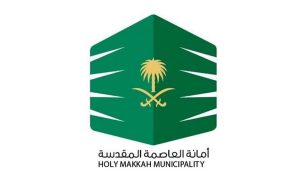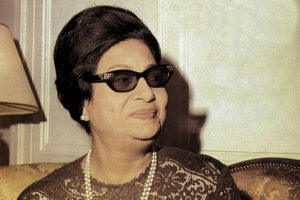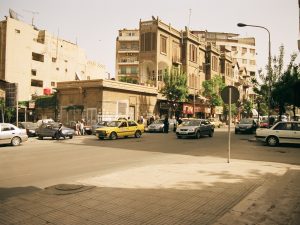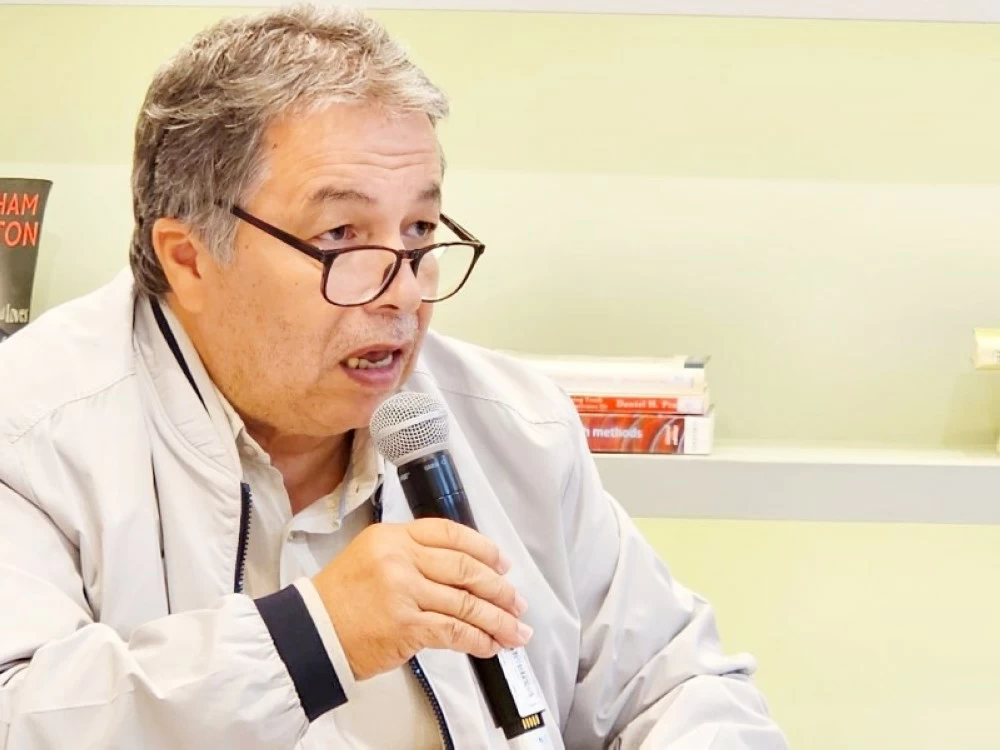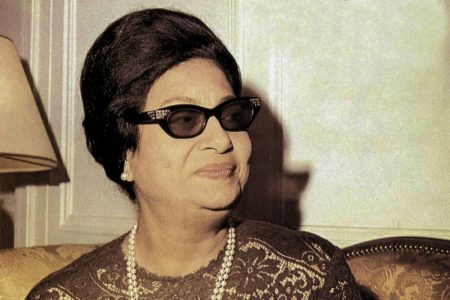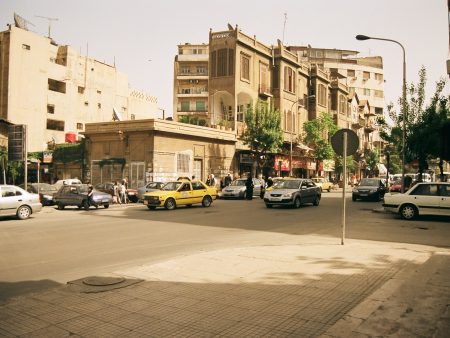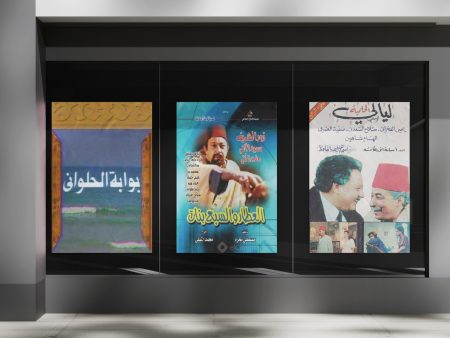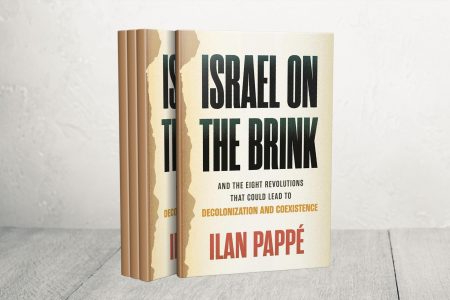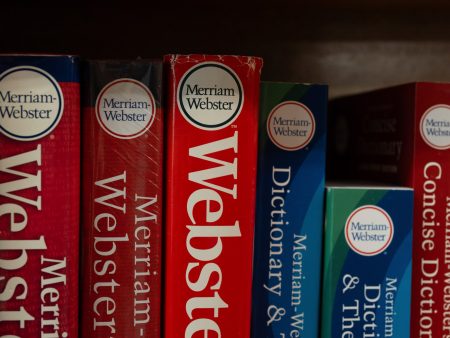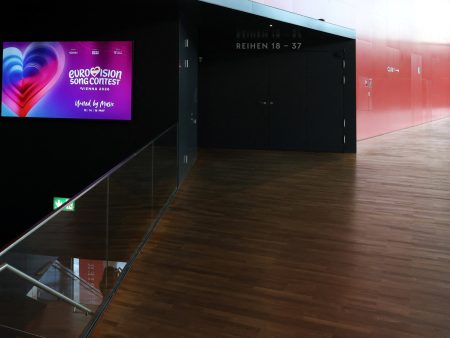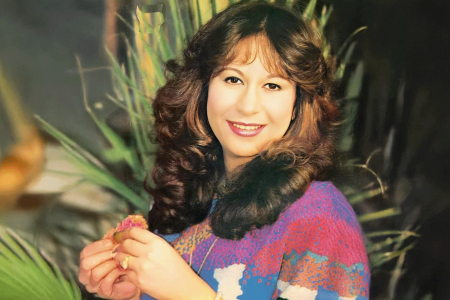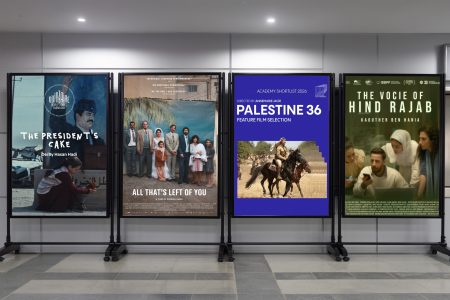يصعب على صحفيّ القبض على مفردات تليق بقامة رئيس بيت الشعر في المغرب الدكتور مراد القادري، وتعدل في منح أيقونة عطاء ما يستحق من الثناء، إذ هو الشاعر النابض بحسٍّ إنساني لا يملكه كل من ادّعى، ولا كل من انتمى، وهو إداري حكيم في أدائه، بحكم تراكم خبراته، ورجل علاقات من طراز فريد، وكل ذلك يلمسه القارئ للحوار الذي حاول تسليط الضوء، على شخصية، يعتزّ بمعرفتها كل من أسعفه الحظُّ والحُبّ، فإلى نصّ الحوار..
• اضطلاعكم برئاسة بيت الشعر.. هل هو تكليف أم تشريف؟
لا شكّ أنه تكليف. وهو تكليفٌ حصل عام 2017، وتمّ تجديده في 2022، وتلقّيتُه وأنا واعٍ حَجْمَ المسؤوليات التي يتعيّنُ عليّ النهوض بها. وفي طليعتها تعزيز مكانة الشعر المغربي بمُختلف أطيافه، وحساسياته وأعمار مُبدعيه، ما يسمحُ بتقوية مكانته في النّسيج الثقافي المغربي، وربطه بالأفق الإنساني، لأن الهوية الشعرية المغربية المعاصرة تقوم، أساساً، على محاورة الكوني.
وهو تشريفٌ كذلك، ليس لي فحسب، بل للقصيدة العامّيّة التي انخرطتُ في كتابتها منذ ثمانينات القرن الماضي. إذْ لأوّل مرة، يتمّ انتخابُ شاعر عامّيّة على رأس مؤسسة ثقافية. هي تحيّة، إذن، لكافّة الشّعراء الذين اختاروا الإسهام، من موقعٍ لغوي وفنّي وجمالي مُختلف، في إثراء الممارسة الشعرية في المغرب. كما أنها تحيّةٌ للجيل الشّعري الذي أنتمي إليه، والذي يستحقّ، في نظري، أنْ يختبر حظّه، وينالَ فُرصته في الإدارة الثقافية لواحدةٍ من أهمّ المؤسسات الثقافية الوطنية، التي برهنت، على حيويتها وديناميتها ونجاحها في أن تُكسِب الشّعر المغربي أراضي شاسعة من الاهتمام والتّداول داخل المغرب وخارجه.
وعموماً، فتشْريفي بهذه المسؤولية أو تكليفي بها، لا يعني، أبداً، أنني أكثر أهلية أو تجربة من زملائي في الهيئة التنفيذية لبيت الشعر في المغرب، الذين أقدّر دعمَهم واشتغالهم بروح الفريق، ووفق تقاليد العمل الجماعي، كيْ نكونَ جميعاً في مستوى الشعر المغربي وانتظارات الشعراء المغاربة.
• كم أنجز بيت الشعر في المغرب من أهدافه؟
•• قد يكون من الأفضل الحديث عن الأهداف التي لم نبلغها بعد. فعلى الرّغم من انقضاء ثلاثة عقود على وجود بيت الشعر في المغرب، ونجاحِه في تحقيق مكاسب كبرى للشّعرية المغربية وللشعرية الإنسانية، وذلك عندما وجّه بتاريخ 29 يونيو 1998 نداءً إلى اليونسكو لإعلان يوم عالمي للشعر، استجابت له المنظمة المذكورة وأعلنت في 15 نوفمبر 1999 عن 21 مارس يوماً عالمياً للشعر. رغم ذلك، فإننا ما زلنا نتطلّع إلى الارتقاء بأدائنا الثقافي والشعري وذلك بتقوية الصلات بين الشّعر وباقي الفنون والمعارف الأخرى، ودعم النشر خصوصاً لفائدة الشباب الذين لا تنحصر مطالبُهم في التّعليم والصحة والشغل والاندماج الاجتماعي فقط، بل تتجاوزها إلى الولوج المفتوح إلى الخدمات الثقافية والفنية، وإتاحة الفرصة لهم للتعبير عن مشاعرهم وانفعالاتهم، وتوطين الشعر المغربي في المقررات المدرسية، وتعزيز المعرفة الشعرية في الفضاء العام خصوصاً في الإعلام.
• لمن تدين بالفضل في مواصلة بيت الشعر لمشروعه؟
•• لكلّ الحالمين بمكانة الشّعر، وقُدرته على تغيير رؤيتنا للذات وللعالم. فبيت الشعر كمؤسسة ثقافية مدنية مستقلة، لم يكنْ له أنْ يواصل حضوره لولا إيمان الشّعراء المغاربة بمُواصلة القبض على جمرة الشعر، والإحساس بالمسؤولية تجاه مستقبله في المغرب. إنهم ينهضون، يومياً، بكتابة ذاكرة حيّة للشعر المغربي ويؤمنون امتداده ويُسهمون في تجديده، بنَفَس مستقبلي.
• ما أثر جائزة الأركانة في حضور بيت الشعر؟
•• جائزة الأركانة العالمية للشعر، نراها داخل بيت الشعر في المغرب، أكثر من جائزة. بل هي لحظةٌ لتثمين الصّداقة الشّعرية التي تربط بلدَنا الثقافي ومغربنا الشعري بباقي الجغرافيات الشعرية. إنها التحيّة التي نحرصُ بواسطتها على قول «شكراً» لكلّ شعراء المعمورة الذين يتميّزُون بتجربةٍ في الحقل الشّعري الإنساني، خصوصاً المدافعين عن قيم الاختلاف والحُرية والسّلم. بها نُصافحهم، وبها نتقاسمُ وإيّاهم حُبّنا للشعر وسَهرَنا عليه.
وكما هو معلوم، فقد انطلقت هذه الجائزة عام 2002. ومنذ ذلك التاريخ، وهي تواصل سيرها في عالم الجوائز الأدبية مُحتفيةً بالمُنجز الشّعري الأكثر إضاءة في المشهد الشّعري العربي والعالمي. ومن ثمّ كان منحُها علامة مُميّزة في تاريخ ومسارِ الشُعراء الذين فازوا بها، الذين شرفوا بها، وشرُفت بهم.
وللمزيد من التّوضيح، يعود اختيارنا لهذا التسمية، لكون شجرة الأركان مغربية بامتياز، فهي لا تنبتُ إلا في المغرب، وتحديداً في منطقة محصُورة من جنُوبه. وهي بذلك شجرة فريدة تُشْبه من بعيد شجرة الزيتون، لكنّنا عندما نقتربُ منها تُظهر كوناً غامِضا مُسْتقِلاً بذاته، هو ذاتُ الغموض الشفيف الذي تفضحُه عيونُ الشعر وتكشفُ عنه جواهره.
جائزة الأركانة العالمية للشعر، التي يرأس أمانتها العامة الشاعر والروائي حسن نجمي، هي عضو في منتدى الجوائز العربية الذي يوجد مقرّه في مدينة الرياض عاصمة المملكة، والذي تأسّس بفضل مبادرة حميدة لأمين عام جائزة الملك فيصل الدكتور عبدالعزيز السبيل. أما مكوناتها، فشهادةٌ تقديريّة تحمل اسم الشاعر الفائز مع مقتطف من تقرير هيئة التحكيم؛ ودرعٌ هو عبارة عن منحوتة نحاسية من الصناعة التقليدية المغربية تشيرُ إلى شجرة الأركانة مُنتصبة على قاعدة رخامية؛ علاوة على مبلغ مالي قيمته 12,000 دولار أمريكي. والمبلغ إن كان يبدُو متواضعاً من الناحية المادية، فإنّ الأثر المعنوي للجائزة يظل كبيراً، لذلك، لا غرابة أن يتطلع للفوز بها كبار شعراء العالم.
وبخصوص هيئة التحكيم وآليته، فإن بيت الشعر يقترح سنويّاً هيئة للتحكيم من سبعة أعضاء كحدّ أقصى لدورة واحدة. والهيئة، التي تتكوّن من شخصياتٍ ثقافية وشعرية وإعلامية معروفة مشهودٌ لها بالكفاءة والنزاهة والإلمام العمِيق بالمشهد الشّعري العالمي وبالأسْماء الوفيّة لجوهر الشّعر والمنتصرة للأمل وللمستقبل الإنساني، تعمل بصفة مستقلة عن وصاية وسلطة بيت الشعر، ولا تخضعُ لأي توجيهات أو إملاءات من طرف الجهة المنظمة أو المانحة.
كل ذلك، يجعلني أقول لك إنّ الأثر الذي أحدثته هذه الجائزة بالغ الأهمية، فهي لم تسهم في خلق دينامية داخل النسيج الثقافي والشعري المغربي فحسب، بل وأوْفَت وعدَها بالتّعبير عن حاجة شِعريات العالم إلى التّحاور فيما بينها بهدف تأكيد ضرورة الشّعر في اللحظة التي ينتصرُ فيها لقضايا الإنسان العادلة، ولمقتضيات الشّعر الجمالية والرؤيوية.
• كم فاز بالجائزة منذ تأسيسها؟ ومن أيّ البلدان؟
•• إلى اليوم انعقدت 17 دورة، توالى خلالها الفوز بالجائزة الشّعراء بي ضاو (الصين)، محمد السرغيني (المغرب)، محمود درويش (فلسطين)، سعدي يوسف (العراق)، الطاهر بنجلون (المغرب)، مارلين هاكر (الولايات المتحدة الأمريكية)، أنطونيو غامونيدا (إسبانيا)، إيف بونفوا (فرنسا)، نونو جوديش (البرتغال)، فولكر براون (ألمانيا)، محمد بنطلحة (المغرب)، محمدين خوّاد (الطوارق)، وديع سعادة (لبنان)، تشارلز سيميك (الولايات المتحدة الأمريكية)، محمد الأشعري (المغرب)، جوزيبي كونتي (إيطاليا)، قاسم حداد (البحرين).
• لماذا لم يفز بها شاعر سعودي إلى الآن؟
•• لن أخفي سرّاً إذا قلت إنّ اسم الشاعرة الكبيرة فوزية أبوخالد ورد كذا مرة في ترشيحات هذه الجائزة، التي أظن أنّ سجلها سيغتني، يوماً، باسم صاحبة «إلى متى يختطفونك ليلة العرس؟». إنّ عدم حصول أي شاعر سعودي على جائزة الأركانة لا يعني أنّ الشعرية السّعودية تفتقدُ لشاعر يستحقُّ أنْ يتربّع تحت شجرة الأركانة الظليلة، وينالَ جائزتها الشعرية العالمية. فتقديرُنا لهذه الشّعرية ولوجُوهها ورموزها من مُختلف الأعمار والحساسيات كبيرٌ جدّا. وذلك، ربما، هو السّبب الذي دفعنا، في بيت الشعر في المغرب، أنْ نحتفي بها من خلال تخصيص العدد 31 من مجلتنا الفصلية «البيت» لراهن الشعر السعودي. وهو أوّل عددٍ يصدُر عقب تحملّي مسؤولية رئاسة بيت الشعر، وجاءت هذه المبادرة للتعبير عن اهتمامنا بالإبدالات الفنية واللغوية والجمالية التي تحقّقت للشعر في المملكة العربية السعودية، مُنجزاً بذلك إضافات قيّمة لشعرنا العربي، خصوصاً على مستوى قصيدة النثر. العدد الذي جاء في أزيد من 150 صفحة، تضمّن مجموعة من الدراسات والشهادات عن التجربة الشعرية السعودية الراهنة، مع نماذج عديدة من النصوص التي وضعت المتلقي أمام صورة موسّعة وواضحة عما يقع في الأراضي الشعرية في هذا البلد العربي الشقيق الذي يبدو بعيداً جغرافياً عن المغرب، لكنه قريب منه ثقافياً وشعريّاً وإنسانيّاً.
وفي ظنّي أن هذا العدد مثّل قنطرة شعرية وإنسانية عبّدها بيت الشعر من أجل عناق شعري وثقافي يليق بتاريخ الصداقة التي تجمع المملكتين المغربية والسعودية. كما أتصوّرُ أنّ العدد المذكور سمح بكشف حيوية ودينامية المشهد الشعري بالمملكة العربية السعودية، وأضاء مسارات التحديث التي تخترقه، فيما هو أكّد الرغبة الدائمة التي تحذُونا في المغرب الشّعري والثقافي للإصغاء إلى التجارب الشعرية في البلدان العربية والتفاعل معها.
• ماذا عن انضمام الجوائز العربية لبعضها إلى جوار جائزة الملك فيصل العالمية؟
•• أطلقت جائزة الملك فيصل عام 2018، عبر أمينها العام الدكتور عبدالعزيز السبيل مبادرةً بالغة الأهمية، وذلك عندما دعت، إلى مقرّها بالعاصمة الرياض، الجوائز العربية المنتشرة عبر امتداد العالم العربي من أجل تأسيس منتدى للجوائز العربية، يكون فضاء للتشاور فيما بينها من أجل تعزيز بيئة ثقافية عربية سليمة، وترسيخ هوية الثقافة العربية، وتمتين حضورها في المحافل الدولية.
اليوم، يُمكنُ لنا أنْ نلمس ثِمار انضمام الجوائز العربية إلى بعضها البعض تحت سقف المنتدى، لا شكّ من أهمها إعادة موضعة دور هذه الجوائز ضمن السياق الثقافي العام الذي تمرّ به منطقتنا، وإثارة السؤال الفكري حول رسالتها في تعزيز المعرفة والابتكار والتميّز تماشياً مع الطفرة الرقمية وهيمنة الذكاء الاصطناعي الذي بات يطرح أسئلة مُقلقة ذات طبيعة أخلاقية تتّصلُ بأصُول ملكية ما يتمّ ترشيحه من أعمال إبداعية لدى عامّة الجوائز. هذا فضلاً على أنّ المنتدى نظّم عدداً من الدورات الفكرية والورش الثقافية، وأحدث، لأوّل مرة، بالتعاون مع مؤسسة الفكر العربي منصة للجوائز العربية، تمّ إطلاقها على هامش الدورة الخامسة لمنتدى الجوائز العربية التي تم تنظيمها، منذ أيام بمدينة دبي، في ضيافة مؤسسة محمد بن راشد آل مكتوم للمعرفة.
• كيف تلقيتم خبر فوز بيت الشعر بجائزة الأكاديمية الدولية للشعر 2026؟
•• بفرح كبير، كيف لا، والأمر يتعلق بجائزة الأكاديمية الدولية للشعر، التي تأسّست في 23 يونيو 2001 تحت رعاية اليونسكو، عقب انعقاد جمعية تأسيسية حضرها أبرز شعراء القارات الخمس، بمن في ذلك ثلاثة من الشعراء الحائزين على جائزة نوبل في الأدب، وهم: وولي سوينكا (نيجيريا)، وشيموس هيني (أيرلندا)، وديريك والكوت (جزر الأنتيل). وهي الأكاديمية التي لعبت منذُ تأسيسها، بدعم من اليونيسكو، دوراً أساسياً في استدامة تأثير رسالة الشّعر على نطاقٍ دولي واسع، وهو ما خوّل لها جذْب انتباه عدد من المؤسسات الرئيسية التي ساهمت في دعْم أنشطتها وبرامجها كوزارة الخارجية الإيطالية، والمديرية العامّة للترويج والتّعاون الثقافي، وبلدية فيرونا، ومِنطقة فينيتو، وجامعة فيرونا، فضلاً عن مؤسسات أخرى.
ونحن اعتبرنا هذه الالتفاتة من طرف مؤسسة دولية، ذات صيت وحضور عالمي، اعترافاً بدينامية بيت الشعر في المغرب على مدى سنوات وجوده، أي منذ تأسيسه عام 1996. وإقرارا بالدّور البارز الذي قامت به مؤسستنا خصوصاً مُبادرتها، التي أقدمت عليها عام 1998، المتمثلة في التوجّه إلى المنظمة العالمية للتربية والعلوم والثقافة (اليونيسكو) بدعوة إقرار يوم عالمي للشعر، وكذا لانخراطها المتواصل في تعزيز مكانة الشعر والالتزام برسالته النبيلة من خلال الأنشطة والبرامج النّوعية، التي راكمتها على مدى ثلاثة عقود، والتي كان لها الأثر البالغ في تثمين دور الشعر كجسرٍ للحوار الثقافي والإنساني.
إنّ بيت الشعر في المغرب، وهو يعتزّ بجائزة الأكاديمية الدولية للشعر، ليعتبرها التفاتةً رمزيّة تجاه الحقل الشعري في المغرب، وتحيّة لها معنىً وقيمة للشعراء المغاربة بمُختلف حساسياتهم اللغوية والجمالية، وتكريماً للشعرية المغربية التي أبانت عن تميزّها وفرادتها في الفضاء العربي والمتوسطي والعالمي، مُؤكداً أنّ هذه الجائزة ستكون حافزاً للبيت على مُواصلة العمل خِدمةً للشعر ولقضاياه الفنيّة والمعرفية والإنسانية.
وتبعاً لرسالة رئيس الأكاديمية الدولية للشعر جيوفاني دوتولي، فإنّ مراسيم تسليم الجائزة ستتمّ بمدينة فيرونا الإيطالية في 21 مارس 2026 بمناسبة الاحتفال باليوم العالمي للشّعر. وسنسعدُ، طبعاً، بالذهاب إلى هناك، إلى مدينة الحُبّ والشعر، وموطن قِصة روميو وجولييت.
It is difficult for a journalist to capture words that befit the stature of the President of the House of Poetry in Morocco, Dr. Mourad Al-Qadri, and to adequately grant the icon of giving the praise it deserves, as he is a poet pulsating with a human sensibility that not everyone who claims it possesses, nor does everyone who belongs to it. He is a wise administrator in his performance, due to the accumulation of his experiences, and a man of relationships of a unique caliber. All of this is felt by the reader of the dialogue that sought to shed light on a personality that everyone fortunate enough to know and love takes pride in. So, here is the text of the dialogue..
• Your assumption of the presidency of the House of Poetry.. is it a duty or an honor?
There is no doubt that it is a duty. It is a duty that I received in 2017, renewed in 2022, and I accepted it while being fully aware of the responsibilities that I must undertake. At the forefront of these is enhancing the status of Moroccan poetry in all its forms, sensitivities, and the ages of its creators, which allows for strengthening its position in the Moroccan cultural fabric and linking it to the human horizon, because contemporary Moroccan poetic identity is fundamentally based on engaging with the universal.
It is also an honor, not just for me, but for the colloquial poem that I have been involved in writing since the 1980s. For the first time, a colloquial poet has been elected to head a cultural institution. It is, therefore, a salute to all poets who chose to contribute, from a linguistic, artistic, and aesthetic standpoint, to enriching the poetic practice in Morocco. It is also a salute to the poetic generation to which I belong, which, in my opinion, deserves to test its luck and gain its opportunity in the cultural administration of one of the most important national cultural institutions, which has proven its vitality, dynamism, and success in granting Moroccan poetry vast territories of interest and circulation both inside and outside Morocco.
In general, my honor with this responsibility or my assignment to it does not mean, at all, that I am more qualified or experienced than my colleagues in the executive body of the House of Poetry in Morocco, whom I appreciate for their support and teamwork spirit, and according to the traditions of collective work, so that we can all be at the level of Moroccan poetry and the expectations of Moroccan poets.
• How many of its goals has the House of Poetry in Morocco achieved?
•• It may be better to talk about the goals we have not yet reached. Despite the passage of three decades since the establishment of the House of Poetry in Morocco, and its success in achieving major gains for Moroccan poetry and human poetry, when it issued a call on June 29, 1998, to UNESCO to declare an international day for poetry, to which the mentioned organization responded and announced on November 15, 1999, that March 21 would be the International Day of Poetry. Nevertheless, we still aspire to elevate our cultural and poetic performance by strengthening the connections between poetry and other arts and knowledge, and supporting publishing, especially for young people whose demands are not limited to education, health, employment, and social integration only, but extend to open access to cultural and artistic services, and providing them with the opportunity to express their feelings and emotions, localizing Moroccan poetry in school curricula, and enhancing poetic knowledge in the public space, especially in the media.
• To whom do you owe the credit for the continuation of the House of Poetry in its project?
•• To all dreamers of the status of poetry and its ability to change our vision of the self and the world. The House of Poetry, as an independent civil cultural institution, would not have been able to continue its presence without the belief of Moroccan poets in continuing to hold the flame of poetry and feeling responsible for its future in Morocco. They rise daily to write a living memory of Moroccan poetry, believe in its extension, and contribute to its renewal with a forward-looking breath.
• What is the impact of the Arikana Prize on the presence of the House of Poetry?
•• The Arikana International Poetry Prize, we see it within the House of Poetry in Morocco, as more than just a prize. It is, in fact, a moment to appreciate the poetic friendship that connects our cultural country and our poetic Morocco with other poetic geographies. It is the salute through which we express our gratitude to all the poets of the world who are distinguished by their experience in the field of human poetry, especially those who defend the values of difference, freedom, and peace. With it, we greet them, and with it, we share our love for poetry and our dedication to it.
As is known, this prize was launched in 2002. Since that date, it has continued its journey in the world of literary prizes, celebrating the most illuminating poetic achievements in the Arab and global poetic scene. Thus, granting it has been a distinctive mark in the history and path of the poets who have won it, who have honored it, and who have been honored by it.
To clarify further, our choice of this name stems from the fact that the Argan tree is uniquely Moroccan; it only grows in Morocco, specifically in a limited area of its south. It is thus a unique tree that resembles the olive tree from a distance, but when we approach it, it reveals a mysterious universe independent in itself, which is the same delicate mystery that the eyes of poetry expose and its jewels reveal.
The Arikana International Poetry Prize, whose general secretariat is headed by the poet and novelist Hassan Najmi, is a member of the Arab Awards Forum based in Riyadh, the capital of the Kingdom, which was established thanks to a commendable initiative by the Secretary-General of the King Faisal Prize, Dr. Abdulaziz Al-Sabeel. Its components include a certificate of appreciation bearing the name of the winning poet along with an excerpt from the jury’s report; a trophy that is a copper sculpture from traditional Moroccan craftsmanship representing the Argan tree standing on a marble base; in addition to a cash prize of $12,000. While the amount may seem modest from a financial perspective, the moral impact of the prize remains significant, so it is no surprise that major poets around the world aspire to win it.
Regarding the jury and its mechanism, the House of Poetry proposes annually a jury of up to seven members for a single session. The jury, which consists of well-known cultural, poetic, and media figures recognized for their competence, integrity, and deep knowledge of the global poetic scene and the faithful names to the essence of poetry and those who champion hope and the human future, operates independently of the oversight and authority of the House of Poetry and is not subject to any directives or impositions from the organizing or granting party.
All of this makes me say that the impact this prize has made is of great importance; it has not only contributed to creating dynamism within the Moroccan cultural and poetic fabric but has also fulfilled its promise to express the need for the poetries of the world to engage with each other to affirm the necessity of poetry at a time when it champions just human causes and the aesthetic and visionary requirements of poetry.
• How many have won the prize since its establishment? From which countries?
•• To date, 17 sessions have been held, during which the prize has been awarded to poets such as Bi Dao (China), Mohamed Serghini (Morocco), Mahmoud Darwish (Palestine), Saadi Youssef (Iraq), Tahar Ben Jelloun (Morocco), Marlene Hacker (USA), Antonio Gamoneda (Spain), Yves Bonnefoy (France), Nuno Jodish (Portugal), Volker Braun (Germany), Mohamed Bentalha (Morocco), Mohamedin Khwad (Tuareg), Wadi’ Saadeh (Lebanon), Charles Simic (USA), Mohamed Ash’ari (Morocco), Giuseppe Conte (Italy), and Qassem Haddad (Bahrain).
• Why has no Saudi poet won it so far?
•• I will not hide a secret if I say that the name of the great poet Fawziya Abukhla has appeared several times in the nominations for this prize, which I believe will one day be enriched by the name of the author of “Until when will they abduct you on your wedding night?”. The absence of any Saudi poet from winning the Arikana Prize does not mean that Saudi poetry lacks a poet deserving to sit under the shady Argan tree and receive its international poetic prize. Our appreciation for this poetry and its faces and symbols from various ages and sensitivities is very great. This is perhaps the reason that led us, at the House of Poetry in Morocco, to celebrate it by dedicating issue 31 of our quarterly magazine “The House” to the current state of Saudi poetry. It was the first issue published after I took on the responsibility of the presidency of the House of Poetry, and this initiative came to express our interest in the artistic, linguistic, and aesthetic transformations that have been achieved in poetry in the Kingdom of Saudi Arabia, thus adding valuable contributions to our Arabic poetry, especially in terms of prose poetry. The issue, which came in over 150 pages, included a collection of studies and testimonies about the current poetic experience in Saudi Arabia, along with numerous examples of texts that presented the recipient with an expanded and clear picture of what is happening in the poetic lands of this Arab brother country that seems geographically distant from Morocco, but is culturally, poetically, and humanly close to it.
In my opinion, this issue represented a poetic and human bridge that the House of Poetry paved for a poetic and cultural embrace befitting the history of friendship that binds the Moroccan and Saudi kingdoms. I also imagine that the mentioned issue allowed for revealing the vitality and dynamism of the poetic scene in the Kingdom of Saudi Arabia and illuminated the paths of modernization that it traverses, while affirming the constant desire that drives us in Moroccan poetry and culture to listen to poetic experiences in Arab countries and interact with them.
• What about the joining of Arab awards to each other alongside the King Faisal International Prize?
•• The King Faisal Prize launched, in 2018, through its Secretary-General Dr. Abdulaziz Al-Sabeel, a highly significant initiative, when it invited the Arab awards spread across the Arab world to its headquarters in the capital, Riyadh, to establish a forum for Arab awards, which would be a space for consultation among them to enhance a sound Arab cultural environment, establish the identity of Arab culture, and strengthen its presence in international forums.
Today, we can see the fruits of the joining of Arab awards to each other under the umbrella of the forum, undoubtedly one of the most important of which is repositioning the role of these awards within the general cultural context that our region is going through, and raising the intellectual question about their message in promoting knowledge, innovation, and excellence in line with the digital boom and the dominance of artificial intelligence, which has begun to raise troubling questions of an ethical nature related to the ownership rights of what is nominated from creative works by the general awards. In addition, the forum has organized several intellectual sessions and cultural workshops, and for the first time, in collaboration with the Arab Thought Foundation, it created a platform for Arab awards, which was launched on the sidelines of the fifth session of the Arab Awards Forum that was recently held in Dubai, hosted by the Mohammed bin Rashid Al Maktoum Foundation for Knowledge.
• How did you receive the news of the House of Poetry winning the International Academy of Poetry Prize 2026?
•• With great joy, how could it be otherwise, as it concerns the International Academy of Poetry Prize, which was established on June 23, 2001, under the auspices of UNESCO, following a founding assembly attended by prominent poets from all five continents, including three poets who won the Nobel Prize in Literature: Wole Soyinka (Nigeria), Seamus Heaney (Ireland), and Derek Walcott (Caribbean). This academy has played, since its establishment, with the support of UNESCO, a fundamental role in sustaining the impact of the message of poetry on a wide international scale, which has enabled it to attract the attention of several major institutions that contributed to supporting its activities and programs, such as the Italian Ministry of Foreign Affairs, the General Directorate for Promotion and Cultural Cooperation, the Municipality of Verona, the Veneto Region, and the University of Verona, in addition to other institutions.
We considered this gesture from an international institution of global reputation and presence as recognition of the dynamism of the House of Poetry in Morocco over the years of its existence, since its establishment in 1996. It is also an acknowledgment of the prominent role our institution has played, particularly its initiative in 1998, which involved approaching the World Organization for Education, Science and Culture (UNESCO) to call for the establishment of an International Day for Poetry, as well as its ongoing commitment to enhancing the status of poetry and upholding its noble message through the qualitative activities and programs it has accumulated over three decades, which have had a significant impact on valuing the role of poetry as a bridge for cultural and human dialogue.
The House of Poetry in Morocco, while it takes pride in the International Academy of Poetry Prize, considers it a symbolic gesture towards the poetic field in Morocco, and a salute with meaning and value for Moroccan poets of various linguistic and aesthetic sensitivities, and an honoring of Moroccan poetry that has demonstrated its distinction and uniqueness in the Arab, Mediterranean, and global space, affirming that this prize will be an incentive for the House to continue working in service of poetry and its artistic, knowledge-based, and human issues.
According to the message from the President of the International Academy of Poetry, Giovanni Dotoli, the award ceremony will take place in the Italian city of Verona on March 21, 2026, in celebration of the International Day of Poetry. We will, of course, be happy to go there, to the city of love and poetry, and the home of the story of Romeo and Juliet.

